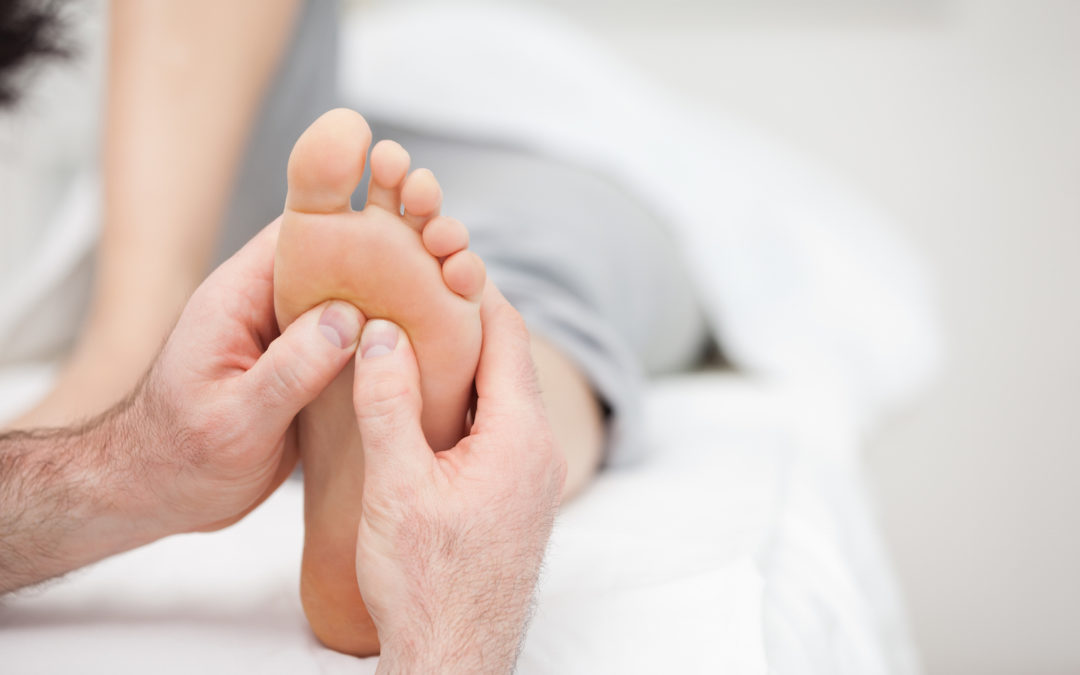If you or a family member have recently been diagnosed with diabetes, you’re probably feeling overwhelmed by the adjustments you have to make to stay healthy. The good news is you don’t have to stop doing your favourite activities. On the contrary, an active lifestyle is important to staying healthy. However, diabetes can have a serious impact on the well-being of your feet so you need to stay on top of all foot-related issues to prevent small concerns from becoming serious problems.
Circulation, Neuropathy and Ulcers
Gradual loss of nerve sensation (neuropathy) in the lower limbs is a common problem for individuals living with diabetes. Reduced sensation means you may not feel if there is a small pebble in your sock, an abrasive sock seam or ill-fitting shoes that are irritating your skin and causing an open sore to form. As you cannot feel the sore, you do not clean or protect it, allowing it to fester and grow. Within a few days you may have an ulcer. The reduced circulation in your feet compounds the problem as it hinders healing.
Toe Nail Issues
Ingrown toe nails, brittle toe nails and callusing near or around the toe nails are also concerning for individuals living with diabetes. Left untreated these seemingly small toe nail issues can lead to infections or ulceration that can also be difficult to heal.
The Canadian Diabetes Association reports that 85 percent of all leg amputations (for Canadians living with diabetes) are a result of non-healing foot ulcers – more than half of which may have been prevented with more effective nail and foot care, and wearing appropriate footwear.
Prevention
Here are some tips to help keep your feet injury free:
- Purchase diabetic socks. These socks are seamless and are designed to increase blood flow to your lower limbs to help keep your feet warm and limit sensation loss.
- Before you go to bed each night examine the bottom of your feet closely for hot spots or wounds. If anything has started to develop, treat it immediately.
- To maintain toe nail and overall foot health, visit your family doctor or a qualified foot care nurse for a full foot checkup annually.
- Book a consultation with a Canadian Certified Pedorthist. Your Pedorthist will do a full assessment of your biomechanics and determine if you have any concerning pressure points. If required, your Pedorthist will make you custom made foot orthotics to alleviate any pressure that may lead to the development of wounds or ulcers.
Pedorthic Association of Canada

